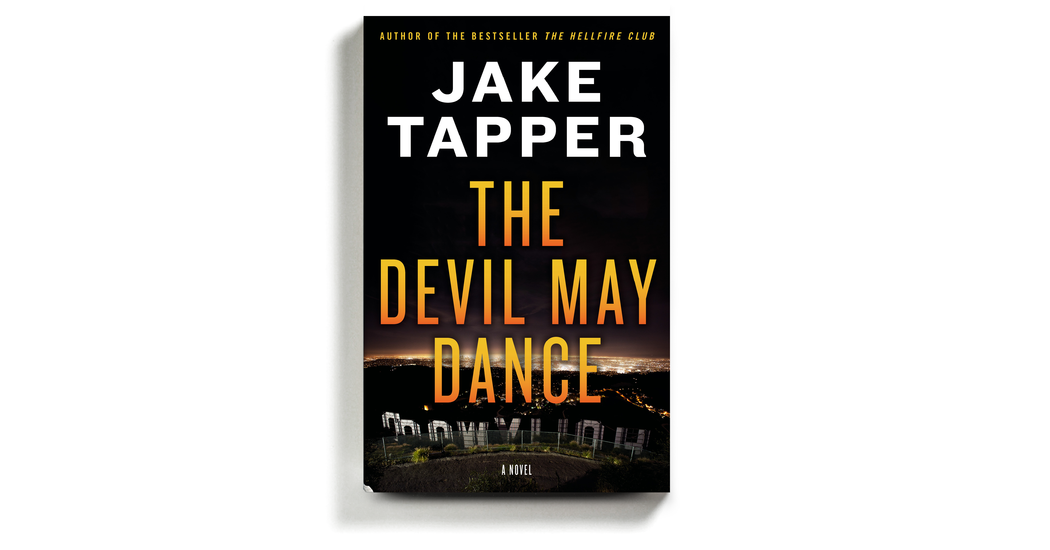
Janet Leigh, movie star, is in the ladies’ room at Toots Shor’s when a zoologist named Margaret Marder runs into her. The year: 1962. The occasion: a wrap party for “The Manchurian Candidate” thrown by another of its stars, Frank Sinatra.
With practically no prompting, Leigh explains exactly how the “Psycho” shower scene was shot (using chocolate sauce for blood), who the body double was, how the Rat Pack has hit on her since her husband, Tony Curtis, ran off with a teenager, how viciously Sinatra treated Lauren Bacall and how Sinatra tried to commit suicide over Ava Gardner. That’s a lot to tell a relative stranger. Then again, that’s how things always roll for Margaret and her husband, the dashing congressman Charlie Marder.
Readers first met the Marders in “The Hellfire Club” (2018), Jake Tapper’s debut thriller, when they were a young couple living in Washington in the 1950s. Tapper — the lead Washington anchor for CNN — left no doubt about the appeal of his main characters, but he had rookie problems overloading his book with cameos and research. For their second outing, the much sprightlier “The Devil May Dance,” he’s jumped ahead to the early 1960s and more glamorous locations. Charlie is based in New York but spends most of the book in Palm Springs, Las Vegas and the most Hollywood-infested parts of California.
The gears of this thriller move expertly and fast. Charlie and Margaret do their touristy traveling for good reason. Attorney General Robert Kennedy, whom Charlie loathes, needs someone to infiltrate the Rat Pack’s hangouts to find out whether the Mob is plotting against his brother, the president. Charlie is a Republican (a detail perhaps intended to expand Tapper’s readership beyond his usual audience). He’s also a World War II combat veteran and an easy charmer. The idea is to get him a job as a technical adviser on “The Manchurian Candidate” and see whether he can observe gangsters up close, ideally in Sinatra’s company.
Tapper complicates this setup in savvy ways. He gives Charlie a barely concealed case of PTSD that manifests itself in alcoholism and sexual restlessness, no matter how much he loves his wife. Throwing him in with this crowd guarantees trouble.
And, as in “The Hellfire Club,” events from the past have resonant echoes in the present. “I suppose nowadays gossip passes for news,” Bobby Kennedy says, a line that could have been uttered this morning. Racism is a recurring theme in the book, thanks mostly to the treatment of Sammy Davis Jr. (The casual patter between Davis and Dean Martin during a nightclub routine at the Sands in Vegas would be enough to prompt disbelief if it weren’t taken from a real recording.) As for underage girls forced to submit to powerful men, a quote from one of these men is taken verbatim from the Jeffrey Epstein scandal: “It’s been said he likes beautiful women as much as I do, and many of them are on the younger side.”
The seriousness of this book never gets in the way of the breathless fun. Tapper obviously enjoyed sourcing it, writing it and using can-you-top-this gamesmanship from start to finish. Just when you think he’s pulled the biggest rabbit out of his hat, he turns out to have been hiding something bigger. The title “The Devil Will Dance” comes from a fictional song that Sinatra performs at the Oscars while Margaret is clambering around somewhere in the scaffolding above the auditorium, and really, shouldn’t that be the big finish? It’s not. By the way, Tapper has either dug up or (more likely) made up the fact that the “West Side Story” publicity tent at the 1962 Oscars had an ice sculpture of Sharks and Jets facing off for a rumble, their tiny switchblades gleaming under the light.
What a lot happens here! Margaret gets invited to the set of “The Birds” and watches as Tippi Hedren is attacked by real avian creatures rather than the mechanical ones she expected. Margaret also shows up at the brand-new Church of Scientology, whose members will not like this book one bit. Along comes L. Ron Hubbard himself to explain “a Hubbard E-Meter.” Those Marders are everywhere! Charlie has a run-in with John Wayne and quietly threatens to out him as a draft dodger, in another touch that has present-day overtones; Charlie doesn’t like chest-thumping manliness from those who didn’t do their share. And of course the Marders see a lot of Judy Campbell, girlfriend to Sinatra, President Kennedy and the mobster Sam Giancana. She isn’t drawn in detail. But one caustic line from her, after Margaret expresses sympathy for the helpless young women bobbing for attention in the Sands pool, does the job: “Those girls don’t need some housewife to protect them.”
In the end, “The Devil May Dance” humanizes Sinatra as a victim of forces he never understood and as one of the least objectionable members of the Rat Pack — less racist and more decent than either Dean Martin or Peter Lawford. It also lets Margaret take a whack at his self-importance: He is proud of what he’s done for racial equality, but what has he done to women? Tapper uses the terminology of the times — “dish,” “doll,” “girlie” — in ways that say everything about how these guys think. He also makes Margaret a wonderful role model for the many people who will enjoy this buoyant book.





